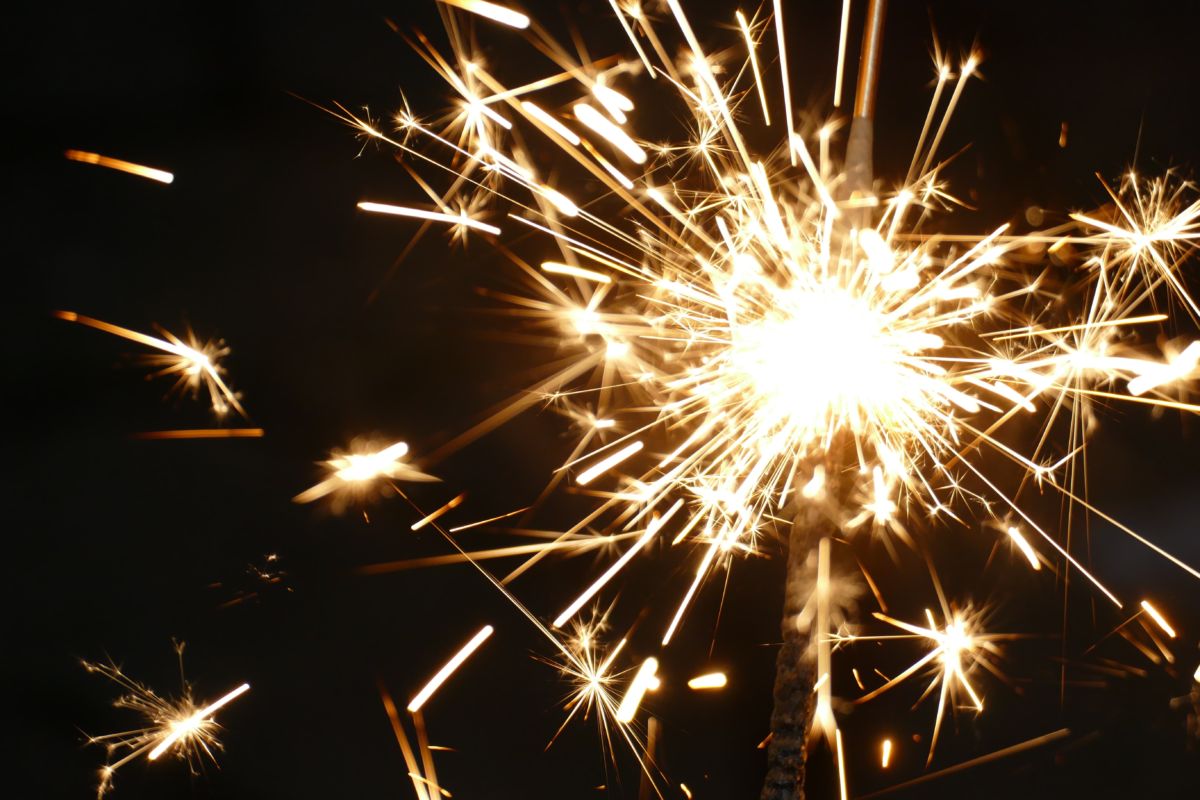Going to an exciting, late-night New Year’s Eve party? Me neither. And this year, those of us who prefer a quiet, reflective evening at home don’t even have to feel so profoundly uncool. It’s what everyone—everyone with any sense—is doing this weekend. Still, I’m looking forward to sweeping out all the bad luck of 2020 and ushering in a new year.
It’s been a terrible year for the country and the world. So far my family and I have escaped unscathed–cross my fingers, knock on wood. So I’m one of the lucky ones: though 2020 was tragic and heartbreaking for many, for me it was just Not Fun. Like a lot of other grandparents, my husband and I didn’t get to see nearly enough of the kids and grandkids. Like a lot of other recent retirees, we canceled several promising trips, made hopeful new plans, and then canceled those, too. We read the news obsessively, caught by the drumbeat of rising Covid numbers and governmental dysfunction. Many ordinary pleasures woven into the fabric of my daily life disappeared. Hugging our children and grandchildren, dining with friends, and traveling to Europe. Seeing movies in theaters, writing in coffeeshops, and breathing fresh Canadian sea-breezes. Going out to restaurants, having an excuse to get gussied up every once in a while, and–oh, did I mention traveling already?
Small compensations and consolations did spring up. My book group, which meets once a month for our discussions, started a weekly chitchat group—outdoors and socially distanced—for as long as the weather held; when it didn’t, we shifted to weekly walks. I took classes that allowed me to discuss with other interested people The Odyssey, the Tao Te Ching, and the novels of E M Forster. I learned about wonderful hiking trails in my area—some through the woods, some through open fields, some through working farmland—and walked them frequently, alone and with friends. I watched a few inventive productions of plays online through National Theater at Home. I learned to Zoom.
I will be reminded of these unexpected small pleasures as Michael and I perform our annual New Year’s Eve ritual—a review of the past year. We will build a fire in the fireplace, make something warm to drink, and pull out the calendar. As we flip from month to month, we’ll scroll through the photos on our phones. We’ll toast ourselves for getting through the tough stuff. We’ll celebrate the things we got to do and the people we got to hang out with. We’ll remember. It’s a good tradition.
Our hopes for the new year, however, will be muted by the prospect of a tough winter ahead. I hope most evictions will be stopped and food pantries stay stocked. (We contribute to that effort financially–the only way we can–and I imagine everyone who reads this blog does, too.) But even those of us with warm homes and enough money to pay the bills will find this winter challenging on an emotional level. As we stay sensibly masked and barricaded in our homes, we will make the best of winter weather with brisk walks, cozy chairs for reading, and projects to keep us engaged. But I know in my bones that there will be many dreary days–days of sleet and blizzards, ice-covered walkways and heavy, gray cloud-cover. It will be hard.
In such circumstances, I believe in the usefulness of whining—appropriate, limited whining. I have an emotional allergy to people who chirpily wag their fingers and scold one for the slightest murmur of complaint. In the Midwest, when I was growing up, social life implicitly demanded that people pull themselves up by their bootstraps (a physical impossibility) and be upbeat all the time (an emotional impossibility). I eventually labeled this The Tyranny of the Fake Smile. Yes, there are times when a charade of cheerfulness works: when I speak kindly to the cashier and thank the postal carrier, I often find myself cheered up, too. But in the privacy of my home, a short, intense bout of grousing and grumbling (to myself, mostly) helps me work up the steam to address a problem. Whining rarely substitutes for action for me. It leads to action.
But my allergy to self-righteous optimism doesn’t derive from my (somewhat peculiar) ways of nudging myself into action. It comes from the social effects of demanding eternal perkiness. If people never feel free to discuss their sadness or anger, they wind up feeling lonely. To be genuinely connected to people, we need to be honest with them, which means occasionally revealing our not-so-attractive feelings. It’s not fun to face such emotions in myself or others, but I try to leave people space to express them. And on days when I’m the one overcome with inertia or stomping around in a state of High Annoyance, I try to cut myself some slack.
So New Year’s Day won’t really signal a good riddance to the bad rubbish of 2020. Instead, the newness of the new year will bloom the way spring comes to the New England. Slowly. (Incidentally, for those who are curious, the first record of “good riddance” comes from Shakespeare’s bitter tragedy Troilus and Cressida. The “bad rubbish” bit doesn’t crop up in print until the eighteenth century. To my ear, it sounds delightfully old-fashioned and British.)
What will count for you as the real beginning of the new year? Will it arrive on January first? Or January 20th? Perhaps on some day in April, two weeks after your second shot of the vaccine, when it’s fully functional in your system? On that day, however you define it and whenever it comes, let me know, so we can celebrate!
